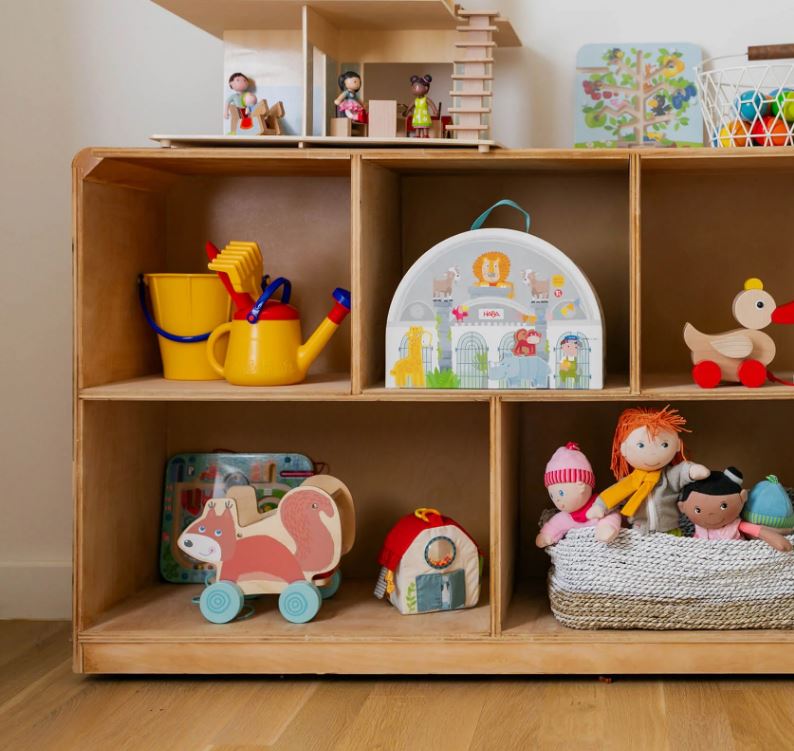What Are Montessori Toys and Why Will You Want to Buy Them for Your Child?
As parents, we all want the best for our children. We want them to grow up happy, healthy, and equipped with the skills they need to navigate the world. But in a market flooded with flashy, noisy, and often overpriced toys, it can be challenging to decide what’s truly beneficial for our little ones. Enter Montessori toys—a growing trend in the world of child development that’s capturing the attention of parents and educators alike. But what exactly are Montessori toys, and why should you consider adding them to your child’s playroom? Let’s dive in.
What Are Montessori Toys?
Montessori toys are inspired by the Montessori method of education, developed by Dr. Maria Montessori in the early 20th century. This educational approach emphasizes hands-on, self-directed learning, independence, and respect for a child’s natural development. Montessori toys are designed to align with these principles, offering children opportunities to explore, discover, and learn at their own pace.
Unlike traditional toys, which often have a single purpose or are designed purely for entertainment, Montessori toys are intentionally simple, open-ended, and made from natural materials like wood, metal, or fabric. They are designed to engage a child’s senses, encourage problem-solving, and foster creativity—all while being fun and engaging.
Key Characteristics of Montessori Toys
- Simplicity: Montessori toys are often minimalist in design. They avoid bright colors, flashing lights, and loud sounds, which can overstimulate children. Instead, they focus on natural aesthetics that are calming and inviting.
- Purposeful Play: Each Montessori toy is designed with a specific developmental goal in mind, whether it’s improving fine motor skills, enhancing concentration, or teaching cause and effect.
- Open-Ended: These toys encourage creativity and imagination. For example, a set of wooden blocks can be used to build a tower, create a pretend city, or even serve as pretend food in a play kitchen.
- Child-Led: Montessori toys are designed to allow children to explore and learn independently. There’s no “right” or “wrong” way to play with them, which empowers children to take charge of their own learning.
- Natural Materials: Montessori toys are typically made from natural, eco-friendly materials like wood, cotton, or metal. These materials are not only durable but also safe for children and better for the environment.
Why Should You Buy Montessori Toys for Your Child?
Now that we know what Montessori toys are, let’s explore why they’re worth investing in for your child’s development.
1. They Promote Independence
One of the core principles of the Montessori method is fostering independence in children. Montessori toys are designed to be self-correcting, meaning children can figure out how to use them on their own without constant guidance from adults. This builds confidence and a sense of accomplishment, which are crucial for a child’s self-esteem.
2. They Encourage Focus and Concentration
In a world full of distractions, Montessori toys help children develop the ability to focus. Because these toys are simple and purposeful, they capture a child’s attention without overwhelming them. For example, a wooden puzzle requires concentration and problem-solving, helping children build their attention span over time.
3. They Support Sensory Development
Montessori toys are often designed to engage multiple senses. A simple set of stacking cups, for instance, helps children develop hand-eye coordination, understand size relationships, and explore textures and weights. This multisensory approach is essential for early childhood development.
4. They Foster Creativity and Imagination
Without the constraints of predefined rules or outcomes, Montessori toys encourage children to think outside the box. A set of wooden shapes can become anything from a spaceship to a castle, depending on a child’s imagination. This kind of open-ended play is crucial for developing creativity and critical thinking skills.
5. They Teach Real-Life Skills
Many Montessori toys are modeled after real-world objects, such as miniature brooms, kitchen utensils, or gardening tools. These toys allow children to practice practical life skills in a safe and fun way, preparing them for real-life tasks as they grow older.
6. They’re Environmentally Friendly
If you’re conscious about sustainability, Montessori toys are a great choice. Made from natural materials, they’re biodegradable, non-toxic, and often crafted by artisans rather than mass-produced in factories. This makes them a more eco-friendly option compared to plastic toys.
7. They Grow with Your Child
Montessori toys are often designed to be used in multiple ways as a child grows. For example, a set of wooden rings can be used for stacking by a toddler and later for counting or sorting by a preschooler. This versatility makes them a long-lasting investment.
Examples of Montessori Toys
If you’re wondering where to start, here are a few examples of popular Montessori toys and their benefits:
- Wooden Blocks: Perfect for building fine motor skills, spatial awareness, and creativity.
- Shape Sorters: Help children learn shapes, colors, and problem-solving.
- Montessori Busy Boards: Equipped with latches, zippers, and buttons, these boards teach practical life skills.
- Sensory Balls: Great for tactile exploration and hand strength.
- Puzzles: Encourage logical thinking and patience.
- Play Kitchen Sets: Allow children to mimic real-life activities and develop social skills.
How to Choose the Right Montessori Toys
When selecting Montessori toys for your child, keep the following tips in mind:
- Consider Your Child’s Age and Interests: Choose toys that align with your child’s developmental stage and interests.
- Look for Quality: Opt for well-crafted toys made from durable materials.
- Avoid Overloading: A few thoughtfully chosen toys are better than a cluttered playroom.
- Observe Your Child: Pay attention to how your child interacts with their toys and adjust accordingly.
Final Thoughts
Montessori toys are more than just playthings—they’re tools that support your child’s growth and development in meaningful ways. By choosing these thoughtfully designed toys, you’re not only providing your child with hours of fun but also laying the foundation for lifelong learning and independence.
So, the next time you’re shopping for toys, consider going the Montessori route. Your child—and the planet—will thank you. After all, isn’t it amazing how something as simple as a wooden block can help shape a brighter future?





